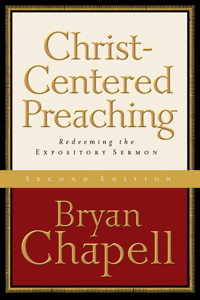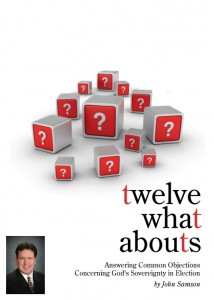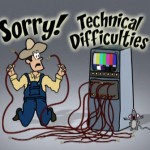 Jonathan Dodson writes:
Jonathan Dodson writes:
Most people question the reliability of the Bible. You’ve probably been in a conversation with a friend or met someone in a coffee shop who said, “How can you be a Christian when the Bible has so many errors?”
How should we respond? What do you say?
Instead of asking them to name an error, I suggest you name one or two of them. Does your Bible contain errors? Yes. The Bible that most people possess is a translation of the Greek and Hebrew copies of copies of the original documents of Scripture. As you can imagine, errors have crept in over the centuries of copying. Scribes fall asleep, misspell, take their eyes off the manuscript, and so on. I recommend telling people what kind of errors have crept into the Bible. Starting with the New Testament, Dan Wallace, New Testament scholar and founder of the Center for the Study of New Testament Manuscripts, lists four types of errors in Understanding Scripture: An Overview of the Bible’s Origin, Reliability, and Meaning.
Types of Errors
1. Spelling and Nonsense Errors
These are errors that occur when a scribe wrote a word that makes no sense in its context, usually because they were tired or took their eyes off the page. Some of these errors are quite comical, such as “we were horses among you” (Gk. hippoi, “horses,” instead of ?pioi, “gentle,” or n?pioi, “little children”) in 1 Thessalonians 2:7 in one late manuscript. Obviously, Paul isn’t saying he acted like a horse among them. That would be self-injury! These kinds of errors are easily corrected.
2. Minor Changes
These minor changes are as small as the presence or absence of an article such as “the” or changed word order, which can vary considerably in Greek. Depending on the sentence, Greek grammar allows the sentence to be written up to 18 times, while still saying the same thing! So just because a sentence wasn’t copied in the same order, doesn’t mean that we lost the meaning.
3. Meaningful but Not Plausible
These errors have meaning but aren’t a plausible reflection of the original text. For example, 1 Thessalonians 2:9, instead of “the gospel of God” (the reading of almost all the manuscripts), a late medieval copy has “the gospel of Christ.” There is a meaning difference between God and Christ, but the overall manuscript evidence points clearly in one direction, making the error plain and not plausibly part of the original.
4. Meaningful and Plausible
These are errors that have meaning and that the alternate reading is plausible as a reflection of the original wording. These types of errors account for less than 1% of all variants and typically involve a single word or phrase. The biggest of these types of errors is the ending of the Gospel of Mark, which most contemporary scholars do not regard as original. Our translations even footnote that!
Is the Bible Reliable?
So, is the Bible reliable? Well, the reliability of our English translations depends largely upon the quality of the manuscripts they were translated from. The quality depends, in part, on how recent the manuscripts are. Scholars like Bart Ehrman have asserted that we don’t have manuscripts that are early enough. However, the manuscript evidence is quite impressive:
There are as many as 18 second-century manuscripts. If the Gospels were completed between AD 50–100, then this means that these early copies are within 100 years. Just recently, Dan Wallace announced that a new fragment from the Gospel of Mark was discovered dating back to the first century AD, placing it well within 50 years of the originals, a first of its kind. When these early manuscripts are all put together, more than 43% of the New Testament is accounted for from copies no later than the second century.
Manuscripts that date before AD 400 number 99, including one complete New Testament called Codex Sinaiticus. So the gap between the original, inerrant autographs and the earliest manuscripts is pretty slim. This comes into focus when the Bible is compared to other classical works that, in general, are not doubted for their reliability. In this chart of comparison with other ancient literature, you can see that the New Testament has far more copies than any other work, numbering 5,700 (Greek) in comparison to the over 200 of Suetonius. If we take all manuscripts into account (handwritten prior to printing press), we have 20,000 copies of the New Testament. There are only 200 copies of the earliest Greek work.
This means if we are going to be skeptical about the Bible, then we need to be thousands of times more skeptical about the works of Greco-Roman history. Or put another way, we can be a thousand times more confident about the reliability of the Bible. It is far and away the most reliable ancient document.
What to Say When Someone Says “The Bible Has Errors”
So, when someone asserts that the Bible has errors, we can reply by saying:
Yes, our Bible translations do have errors—let me tell you about them. But as you can see, less than 1% of them are meaningful and those errors don’t affect the major teachings of the Christian faith. In fact, there are a thousand times more manuscripts of the Bible than the most documented Greco-Roman historian by Suetonius. So, if we’re going to be skeptical about ancient books, we should be a thousand times more skeptical of the Greco-Roman histories. The Bible is, in fact, incredibly reliable.
Contrary to popular assertion, that as time rolls on we get further and further away from the original with each new discovery, we actually get closer and closer to the original text. As Wallace puts it, we have “an embarrassment of riches when it comes to the biblical documents.” Therefore, we can be confident that what we read in our modern translations of the the ancient texts is approximately 99% accurate. It is very reliable.
For Further Study
In order of easy to difficult:
My sermon and manuscript, “Is the Bible Inerrant?”
Can I Trust the Bible? (free preview), by R. C. Sproul
Understanding Scripture: An Overview of the Bible’s Origin, Reliability, and Meaning, edited by Wayne Grudem, C. John Collins, and Thomas Schreiner
The Inspiration and Authority of the Bible, by B.B. Warfield
Text of the New Testament, by Bruce Metzger and Bart Ehrman
This post originally appeared on Gospel-Centered Discipleship.
 Christ-Centered Preaching: Preparation and Delivery of Sermons
Christ-Centered Preaching: Preparation and Delivery of Sermons

 “It is easier to cry against one-thousand sins of others than to kill one of your own… It is easier to declaim like an orator against a thousand sins in others than to mortify one sin in ourselves; to be more industrious in our pulpits than in our closets; to preach twenty sermons to our people than one to our own hearts.” – John Flavel
“It is easier to cry against one-thousand sins of others than to kill one of your own… It is easier to declaim like an orator against a thousand sins in others than to mortify one sin in ourselves; to be more industrious in our pulpits than in our closets; to preach twenty sermons to our people than one to our own hearts.” – John Flavel
 Repost from Sept. 29, and were good friends of D.L. Moody and Ira Sankey for many years. Mr. Spafford’s children had come to Christ through the influence of Ira Sankey’s music and efforts with the children of Chicago. Shortly before the Great Chicago Fire of October 8th, 1871, the Spafford’s son died and the family went into deep mourning.
Repost from Sept. 29, and were good friends of D.L. Moody and Ira Sankey for many years. Mr. Spafford’s children had come to Christ through the influence of Ira Sankey’s music and efforts with the children of Chicago. Shortly before the Great Chicago Fire of October 8th, 1871, the Spafford’s son died and the family went into deep mourning. “Be careful of not making a Saviour of faith. There is a danger – and it cannot be too vigilantly guarded against – of substituting the work of the Spirit for the work of Christ; this mistake it is that leads so many of God’s saints to look within, instead of without, themselves for the evidences of their calling and acceptance; and thus, too, so many are kept all their spiritual course walking in a state of bondage and fear, the great question never fully and fairly settled, or, in other words, never quite sure of their sonship. The work of Christ is a great and finished work; it is so glorious that it can admit of no comparison, so complete that it can allow of no addition, and so essential that it can give place to no substitution. Precious as is the work of the Holy Ghost in the heart, and essential as it is to the salvation of the soul, yet he who places it where the work of Jesus ought only to be, deranges the order of the covenant, closes up the legitimate source of evidence, and will assuredly bring distress and uncertainty into his soul. ‘Righteousness, peace, and joy’ are the fruit of a full belief in the Lord Jesus Christ; and he who looks for them away from the cross, will meet with disappointment: but they are found in Jesus. He who looks away from himself, from his vileness, guiltiness, emptiness, and poverty, fully and believingly unto Jesus, shall know what the forgiveness of sin is, and shall experience the love of God shed abroad in his heart.
“Be careful of not making a Saviour of faith. There is a danger – and it cannot be too vigilantly guarded against – of substituting the work of the Spirit for the work of Christ; this mistake it is that leads so many of God’s saints to look within, instead of without, themselves for the evidences of their calling and acceptance; and thus, too, so many are kept all their spiritual course walking in a state of bondage and fear, the great question never fully and fairly settled, or, in other words, never quite sure of their sonship. The work of Christ is a great and finished work; it is so glorious that it can admit of no comparison, so complete that it can allow of no addition, and so essential that it can give place to no substitution. Precious as is the work of the Holy Ghost in the heart, and essential as it is to the salvation of the soul, yet he who places it where the work of Jesus ought only to be, deranges the order of the covenant, closes up the legitimate source of evidence, and will assuredly bring distress and uncertainty into his soul. ‘Righteousness, peace, and joy’ are the fruit of a full belief in the Lord Jesus Christ; and he who looks for them away from the cross, will meet with disappointment: but they are found in Jesus. He who looks away from himself, from his vileness, guiltiness, emptiness, and poverty, fully and believingly unto Jesus, shall know what the forgiveness of sin is, and shall experience the love of God shed abroad in his heart. “In order for [Jesus] to qualify as our Redeemer, it was not enough for Him simply to go to the cross and be crucified. If Jesus had only paid for our sins, He would have succeeded only in taking us back to square one. We would no longer be guilty, but we still would have absolutely no righteousness to bring before God.”
“In order for [Jesus] to qualify as our Redeemer, it was not enough for Him simply to go to the cross and be crucified. If Jesus had only paid for our sins, He would have succeeded only in taking us back to square one. We would no longer be guilty, but we still would have absolutely no righteousness to bring before God.” … a member of the Roman Catholic communion made the following comment:
… a member of the Roman Catholic communion made the following comment: I am looking forward to spending today with a TV/film production crew in Tucson, Arizona.
I am looking forward to spending today with a TV/film production crew in Tucson, Arizona. The sermons, interviews and radio programs (available by clicking on the audio tab above) were down for a few days, due to technical difficulties, but I am pleased to say that they are now functioning properly.
The sermons, interviews and radio programs (available by clicking on the audio tab above) were down for a few days, due to technical difficulties, but I am pleased to say that they are now functioning properly.